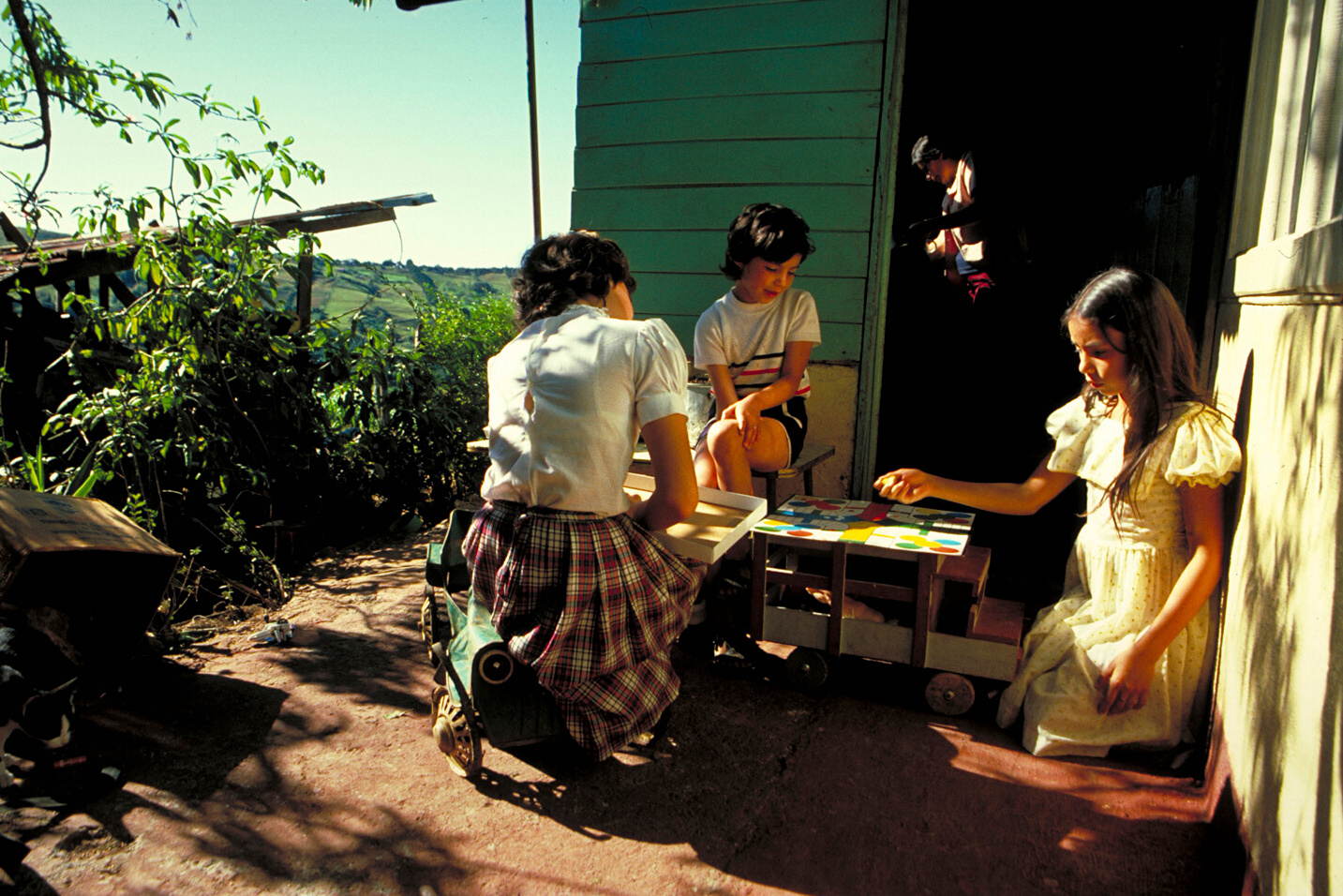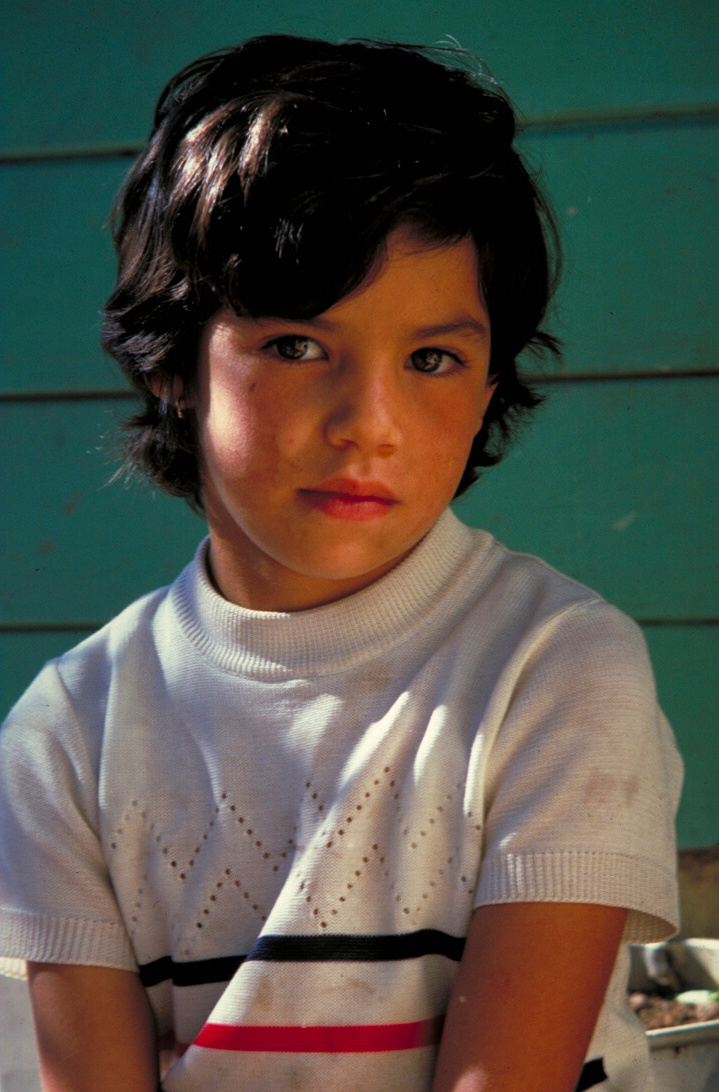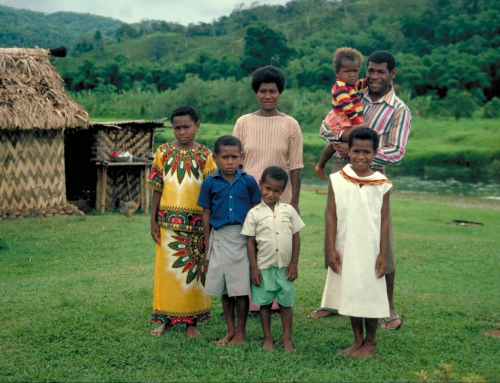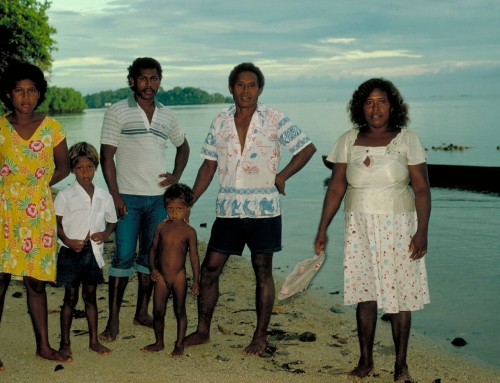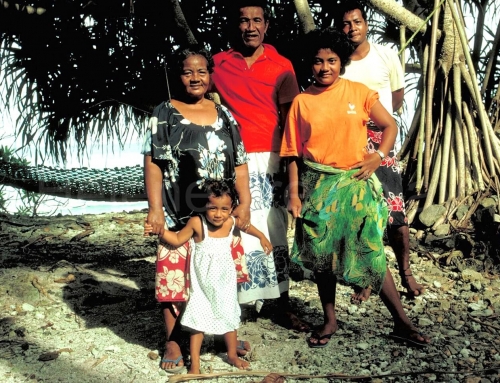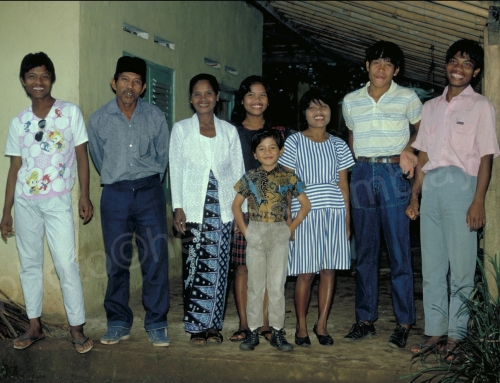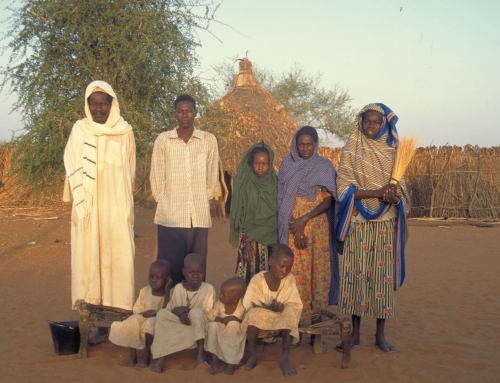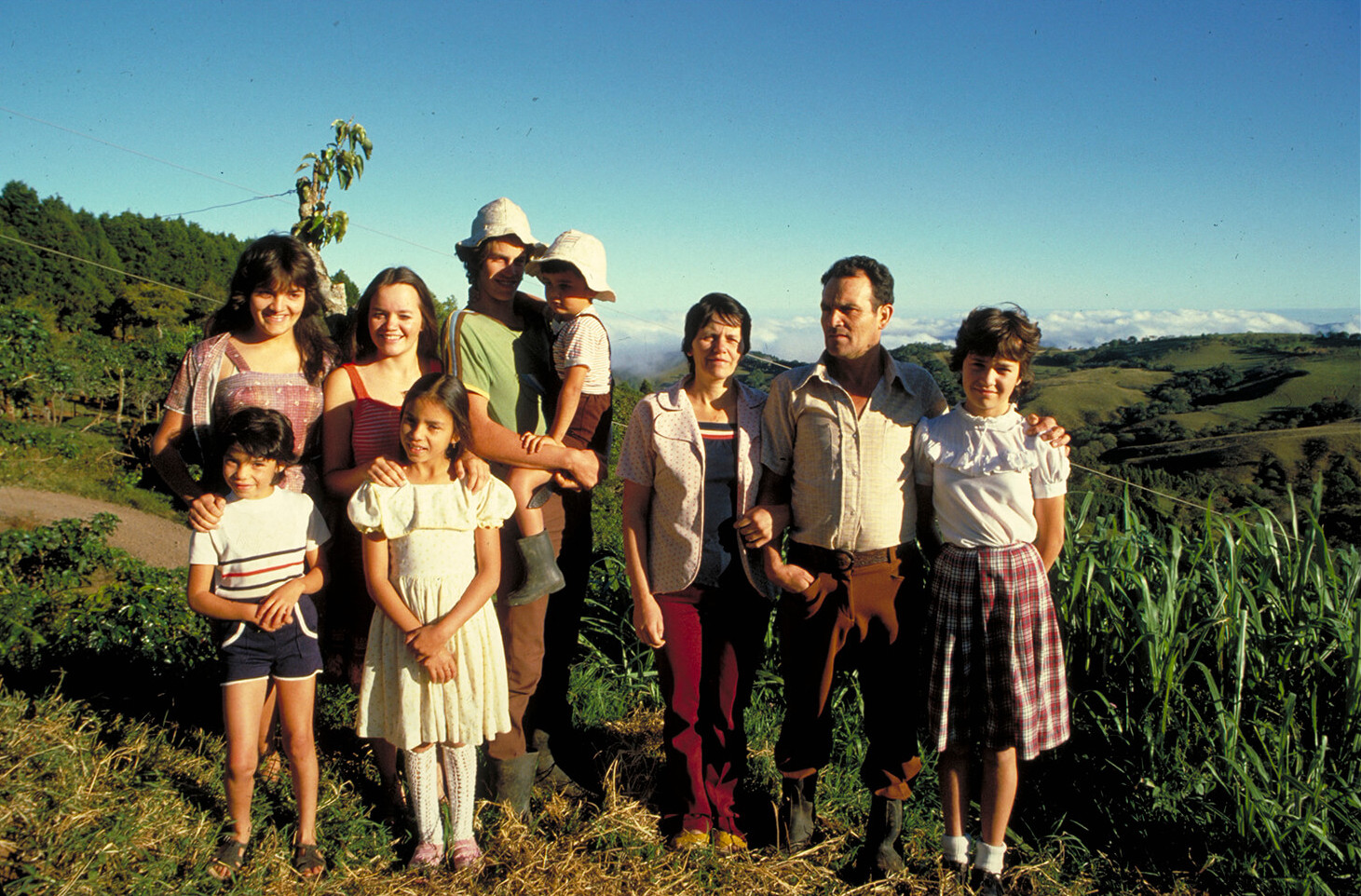
THE SALAS VARGAS FAMILY
Luis Enrique Salas Villalovos, age 41
Maria Tulia Vargas Rodriguez de Salas, 41
Anabelle Salas Vargas, 21 (absent)
Grace Maria, 19
Mario Enrique, 18
Maria del Rocio, 16
Maricela, 13
Roy Alberto, 3
Jacqueline Salas Villalovos (cousin), 10
Shirley Salas Villalovos (cousin), 7
7 cows
6 calves
1 dog
25 chickens
2 rabbits
1 cat and 1 kittens
BARRANCA DE NARANJO
December 22, 1984
The wind buffets the wooden house
4:00. During the dry season, from December to March, the wind buffets the wooden house of the Salas Vargas family. Awakened by a particularly violent gust, Luis Enrique shakes awake his elder son, Mario, to accompany him clown the hill to milk the cows. Their animals are good milk producers, and today there is enough to fill two large white metal cans. Mario and his father hoist the heavy loads onto their shoulders for the winding dimb up the mountain’s dirt road to the main highway, where the truck from the cooperative passes by to collect the milk. The evening milking is for the family.
5:30. In the lean-to attached to the side of the house, Maria Tulia picks up a few logs from the pile arranged carefully along the wall and throws them into the open-fire cement stove that dominates the shed. Electricity is so expensive that she is reluctant to use the electric stove in the kitchen every day. This morning the wood fire will be in constant use. It’s three days before Christmas and the Salas Vargas women will prepare hundreds of holiday tamales for family and friends. Maria looks forward especially to seeing her grandchildren, who will arrive on Christmas Day.
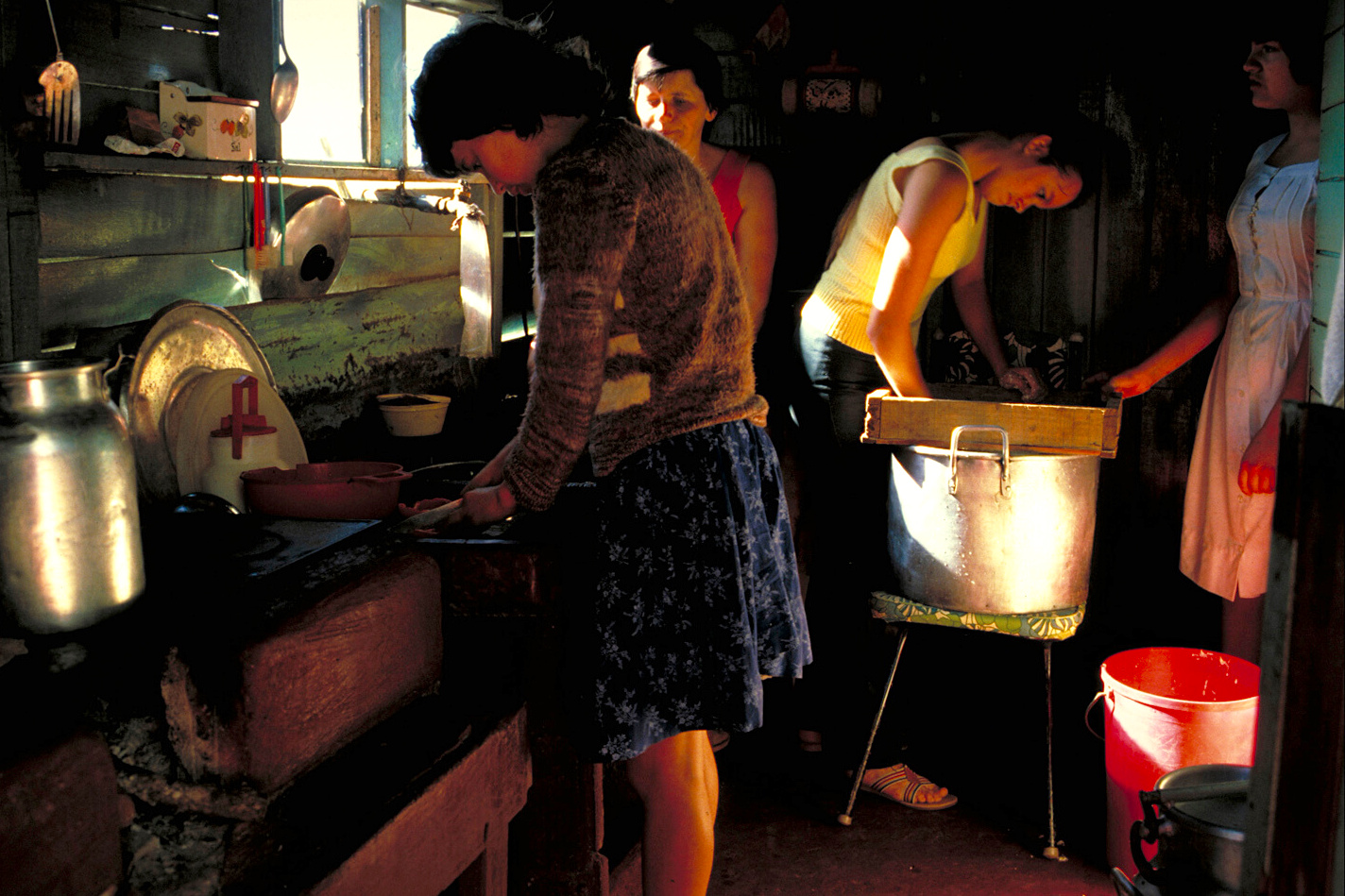
Mario and his father return, and Maria Tulia serves them breakfast. Luis Enrique snatches up his sleepy three-year-old son and carries him to the table. His morning meal finished, Mario goes across the family compound to fetch his uncle Carlos. Carlos’ house is attached to his parents’ house, where his widowed sister also lives with her two little girls. After building his house, Carlos helped his brother Luis Enrique build his own sixty-square-meter home, which is connected to their father’s by a breezeway.
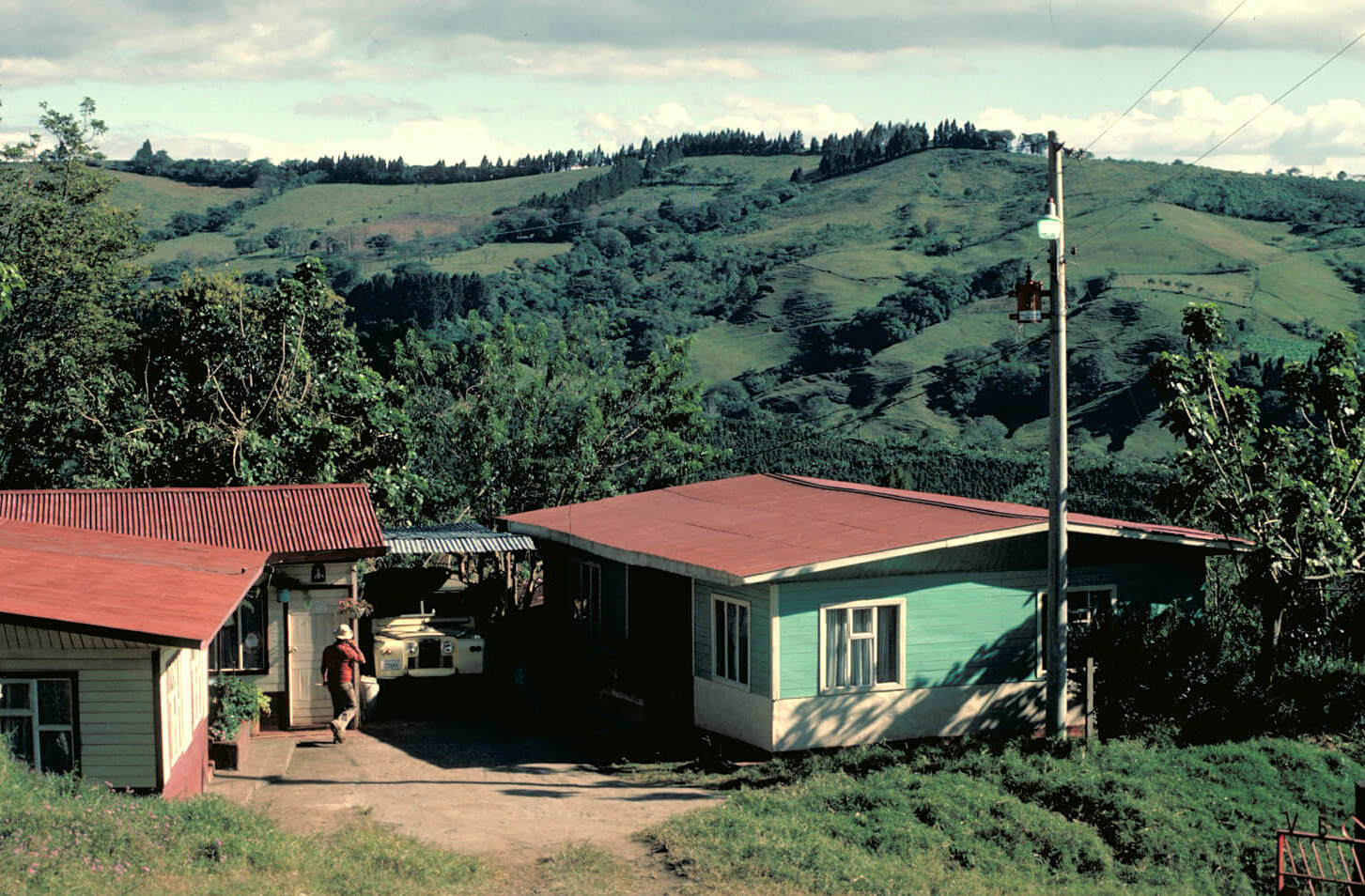
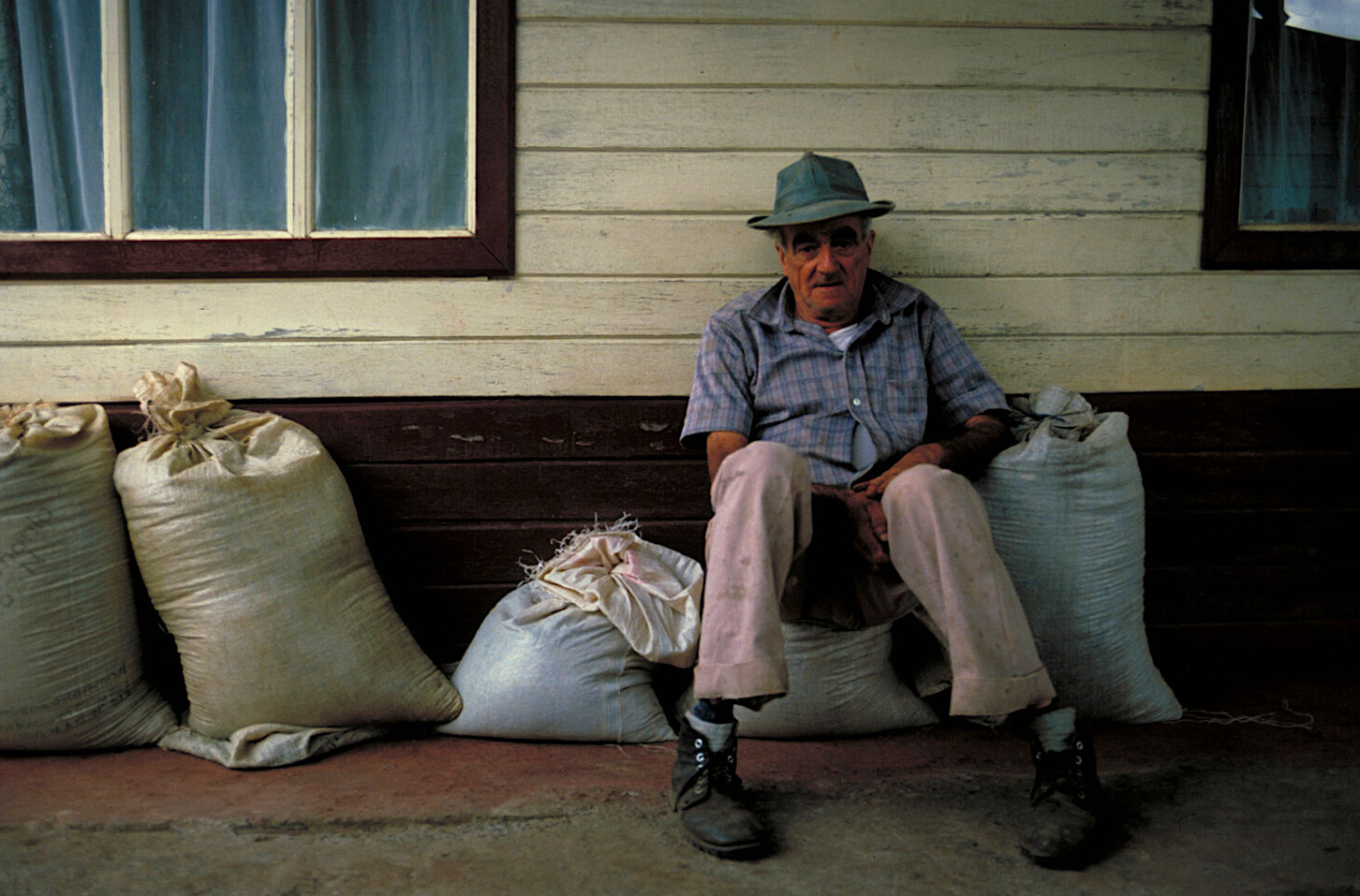
7:30. Nineteen-year-old Grace is the first of the three sisters to awake. During the school year the entire family is up at five o’dock, and the girls help with the farm chores before the school bus comes. This morning, however, they have slept in. In this part of the world Christmas takes place during summer vacation. The coffee beans are also harvested at this time, with a short break to observe the holiday. The young people who join the harvest are paid according to the weight of the beans picked. For many of them, like Grace’s younger sisters, it’s a chance to have fun and flirt with the boys. Maria, in particular, always manages to choose a row of trees that will bring her closest to her current favorite. But Grace has more serious ambitions. She wants to become a teacher, and her university career depends on her holiday earnings. In contrast to her sisters, she hardly talks at all in the fields.
Maricela and Maria join their mother and Grace, and over an ample breakfast of tortillas and fresh cream, they discuss investing their future earnings in fabric for new dresses.
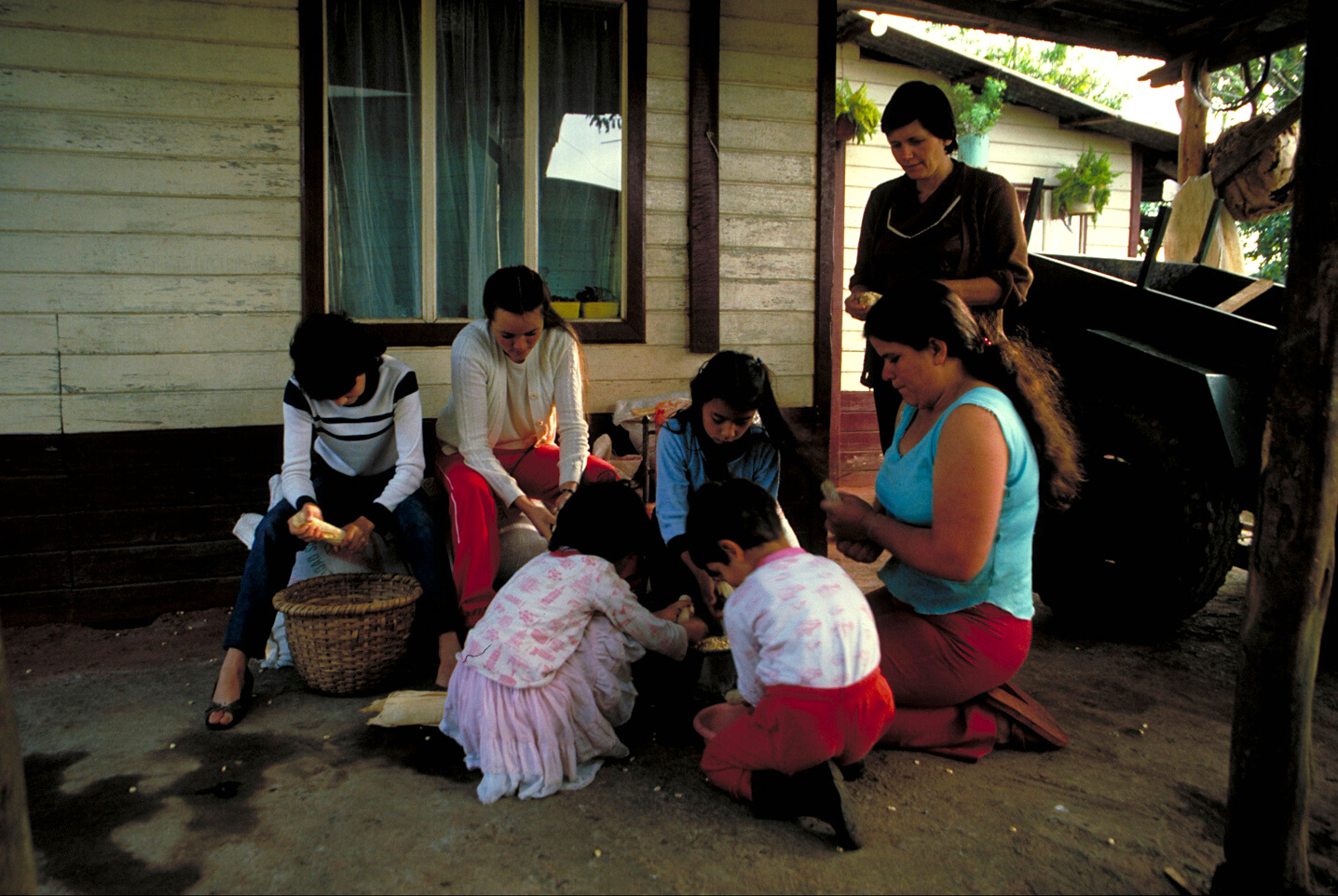
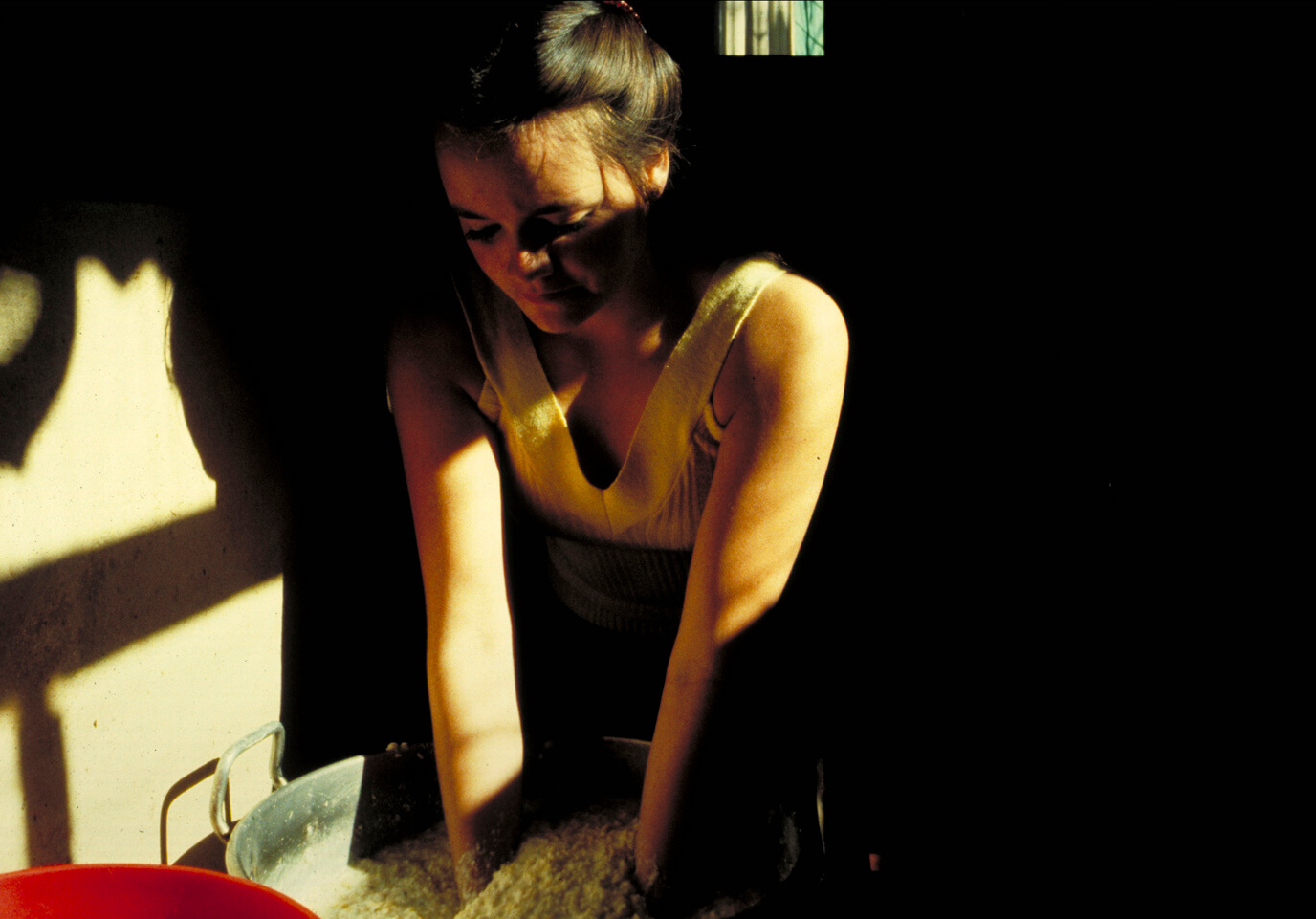
8:30. It’s time for the three sisters to do their chores. As they go clown to the COW shed with Roy following at their heels, they are joined by their two little cousins, Jacqueline and Shirley. The two young girls will keep an eye on their cousins while the older girls untie the cows and dean out their stalls. This is not normally the girls’ job, but today they are helping out because Mario and Uncle Carlos have gone to sell cabbages in the market and their father has taken the bus to Naraja to fetch help for a cow that has just calved. The placenta has not emerged and the cow lies on its side, breathing with difficulty. Roy and his cousins crouch near the sick animal while Maricela forks the grass into a big manual chaffcutter, mixes it with oats and molasses, and fills the mangers.
10:30. Luis returns with the barber. “He knows as much as a vet and charges much less,” explains Luis. The man actually does seem to know what he is doing. With swift action, he removes the placenta, gives the cow an injection to prevent infection, and gets the animal back on its feet. While he is there, Enrique asks him to look at the other cows, since there is an epidemic raging that has already killed several animals in the district. The younger children haven’t moved an inch from his side.
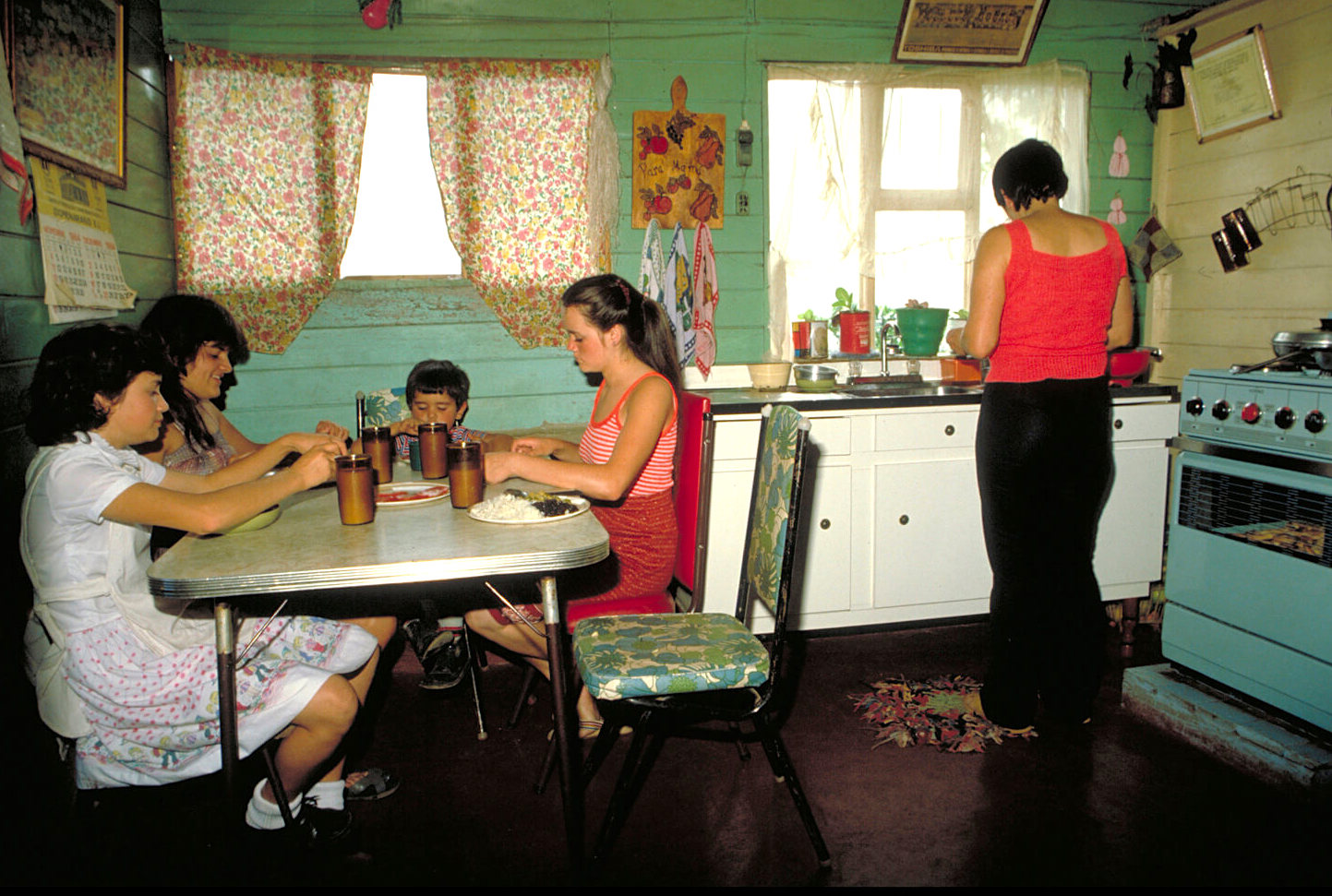
12:30. Maria Tulia serves her family lunch. Back from the market, Mario sits with his plate on his knees and watches the report of the bicycle tour of Costa Rica. All the international stars are participating and, at the moment, a Guatemalan is in the lead. “Not surprising,” says Mario. “They train in their mountains, and they’re higher than ours!”
Indifferent to their brother’s enthusiasm, the girls quickly wash the dishes. They have work to do this afternoon. Making two hundred tamales is no small order. Jacqueline and Shirley settle down with Roy to watch Donald Duck on television. They practically live at Maria Tulia’s, where the atmosphere is much livelier.
In the shed, Maria Tulia surveys her simmering pots of chicken, pork, beef, vegetables, and spices. A delicious aroma fills the house with the spirit of Christmas, accompanied by holiday songs on the radio. Even serious Grace sings the choruses along with her sisters as she presses the boiled corn through a sieve to make mush. Maria and Maricela lay out the plantain leaves on the table. When everything is cooked, they will spread successive layers of corn paste, meat, rice, and vegetables on each leaf, then tie each packet before placing it in the refrigerator. This season brings many visitors to the house, and no one is allowed to leave without having tasted a tamale. ‘The longer you keep them, the better they get,” claim the girls.
3:00. After a short siesta, Mario helps his father bring in the cows and milk them. Enrique is very organized and demands as much from Mario as from himself. He is grateful to have a son who never shirks a task. Enrique was a policeman in his youth, but it was a poorly paid profession no matter how hard he worked at it, and he did not like the violence. He took over the family farm when his father retired and is much happier. “Now I’m independent,” he says, “and the harder I work, the more I can give to my family.”
8:00. After supper, the sons and daughters kneel around their parents’ bed to say a rosary. In a corner, Roy’s crib is full of ironing. He doesn’t sleep in it anymore; Enrique dotes on his younger son and lets him sleep between himself and his wife. When the prayer is over, father and son both lie down and soon are sleeping deeply.
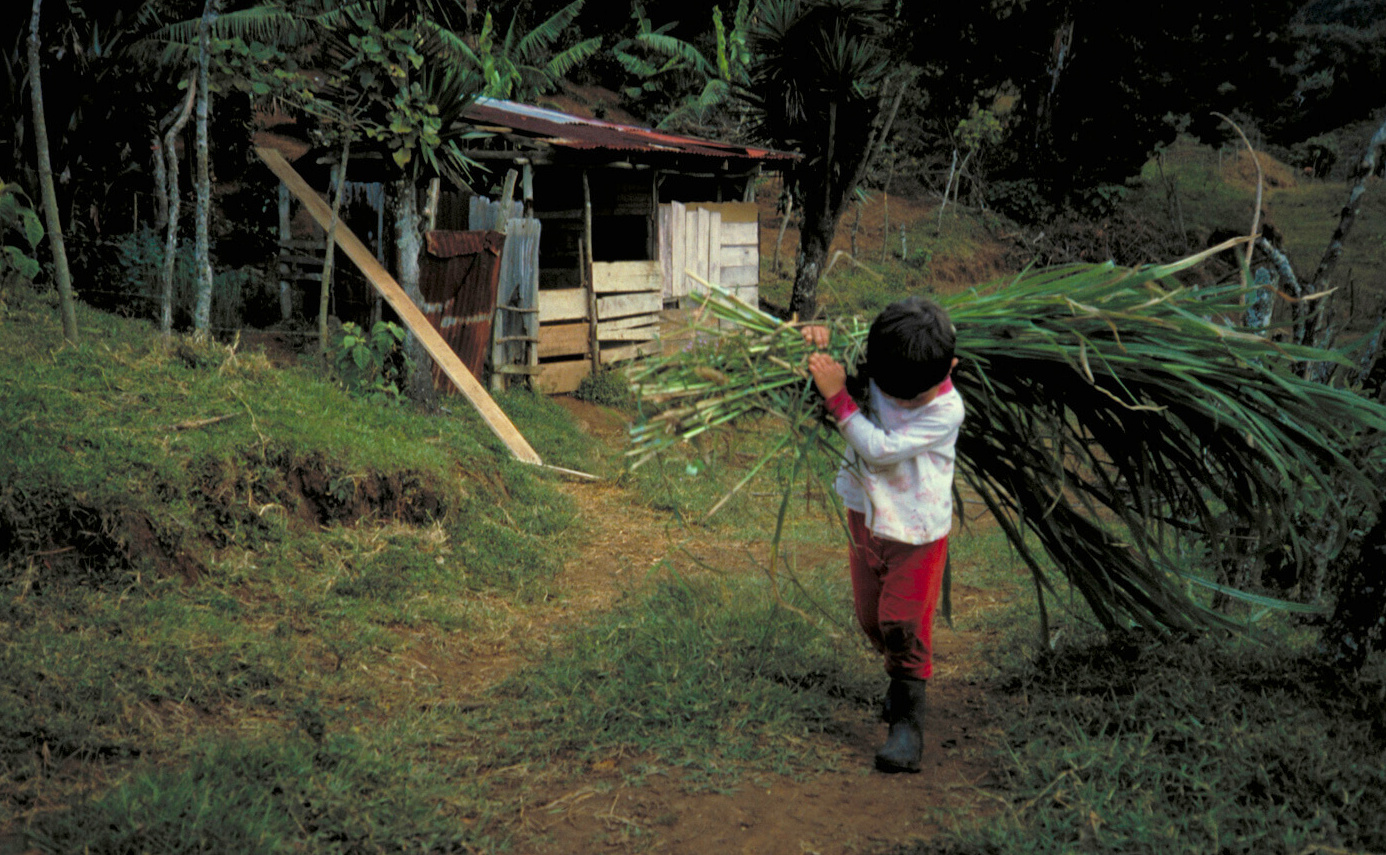
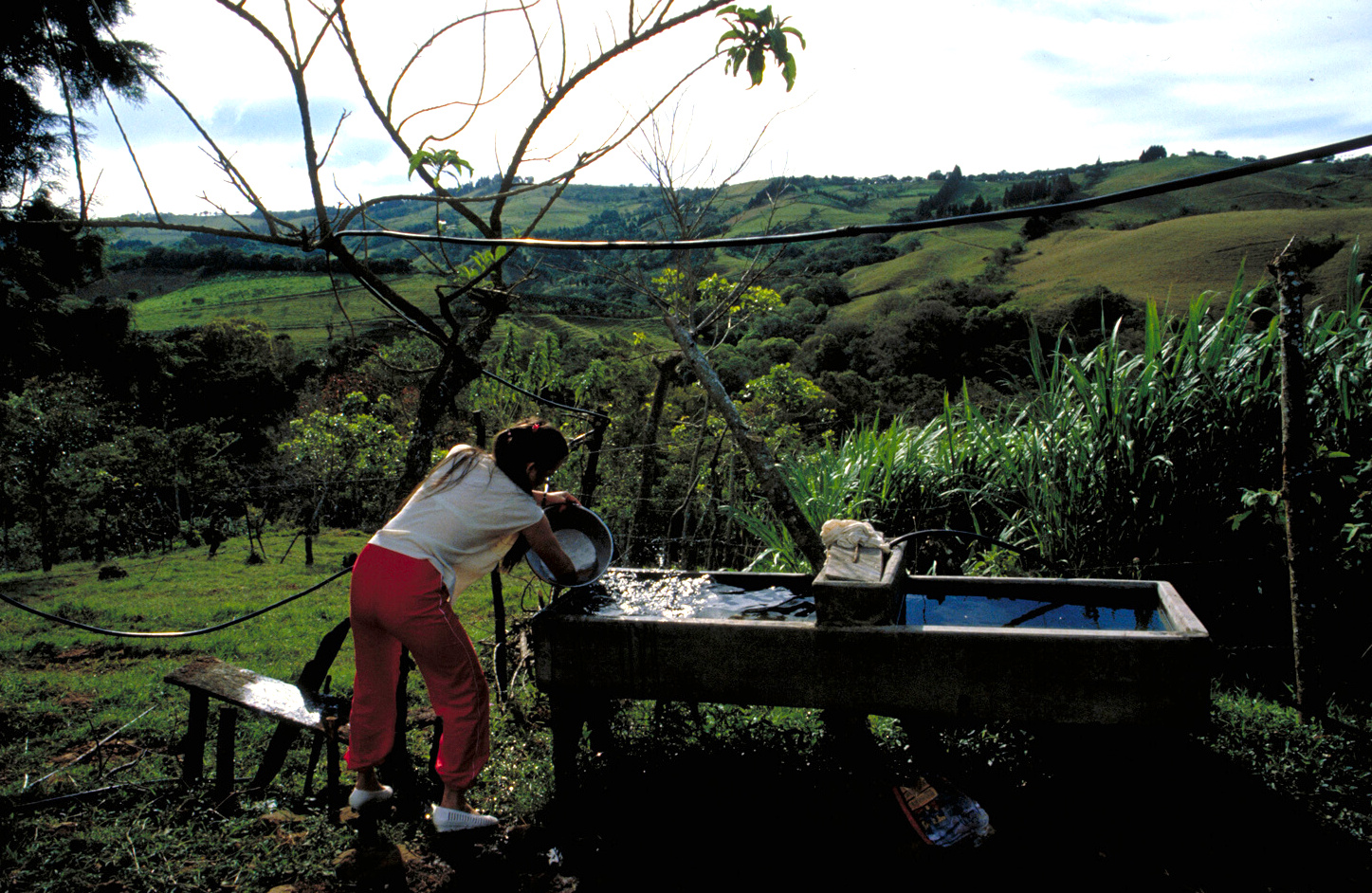
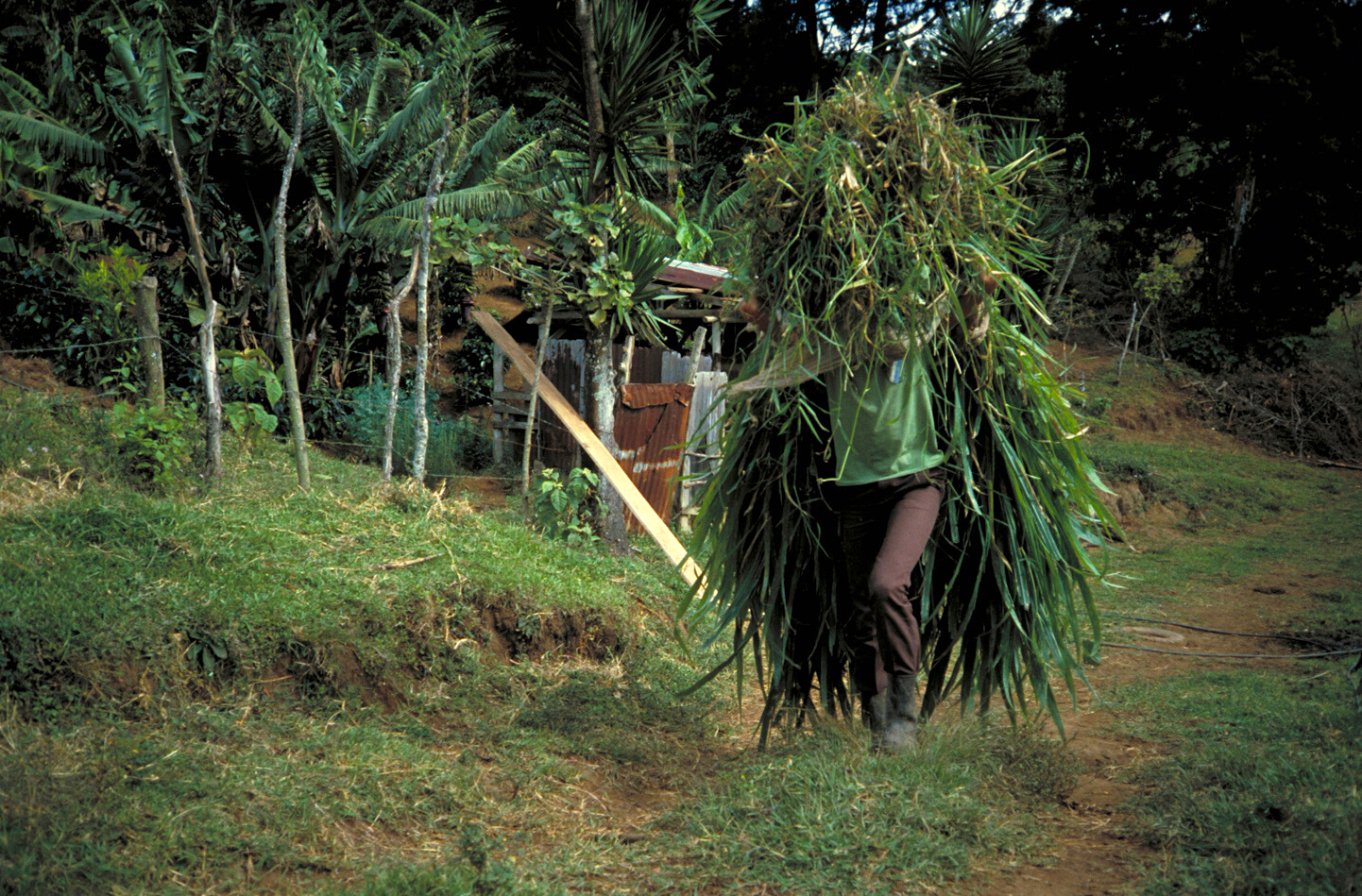
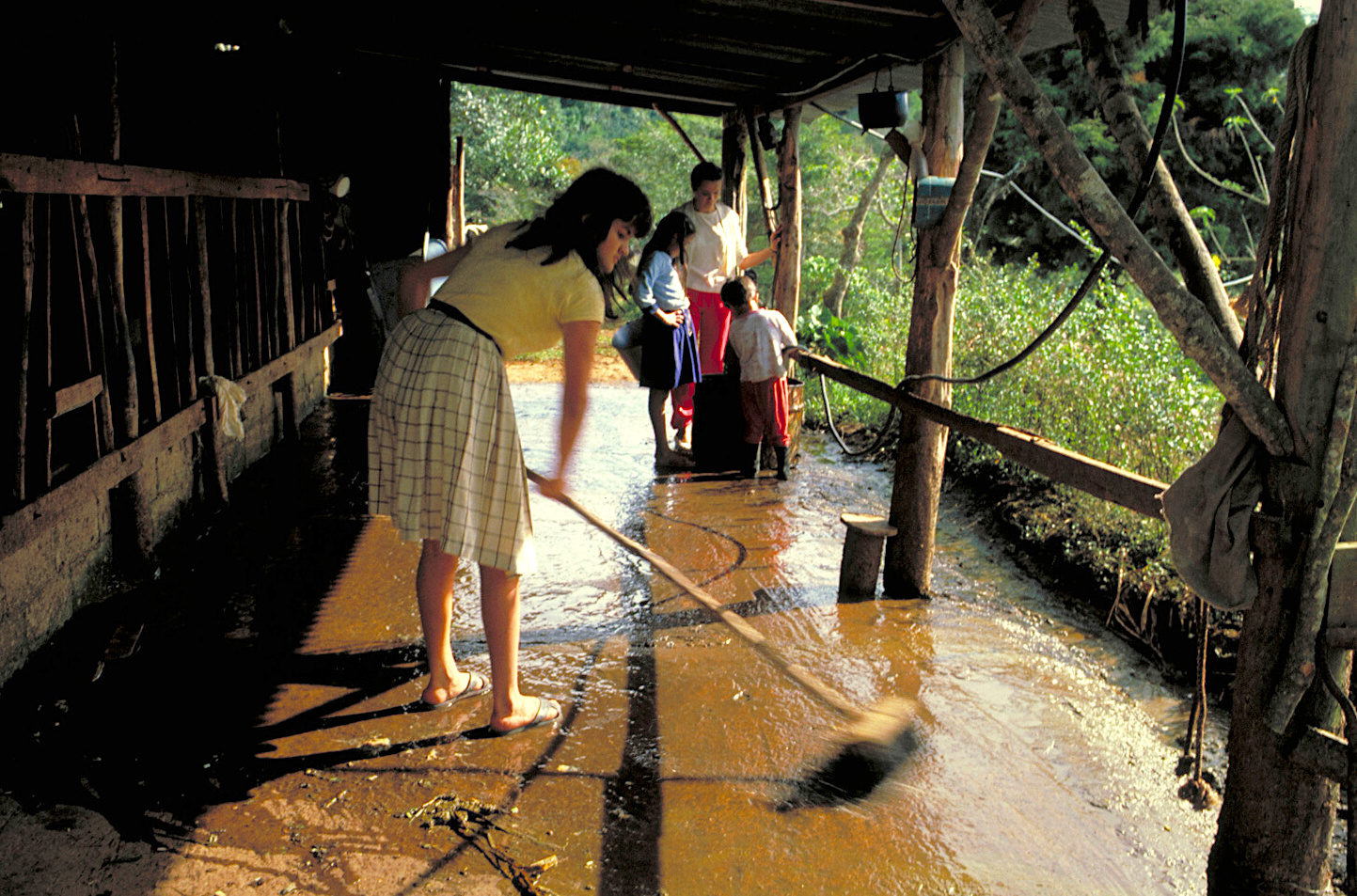
As he does every evening, Mario goes off to join his friends. Thanks to the district farmers’ association, of which Enrique is chairman, the young people have a place to meet. The building is half café, half party room. The association has also proved the farmers with running water, electricity, and a paved road into town.
The girls go to their grandfather’s to watch Esperanza, a soap opera that no one wants to miss. Maria Tulia takes advantage of the quiet evening to compile the list of New Year’s presents that she will huy tomorrow for her grandchildren.
9:00. When Mario returns, his three sisters tease him as usual, demanding news of his girlfriend. Mario merely smiles. He joins them in a board game called Gran Banco: with a few good throws of the dice and a little luck the winner is declared a millionaire. “Mother, would you make us some delicious chocolate?” asks Maricela in her nicest voice. Maria Tulia lovingly serves her children before going to bed.
10:30. The game would go on forever if they didn’t have to get up at dawn tomorrow. Mario is the privileged one with a room all to himself. In the next room, the three girls sleep in the same bed. Even when the lights are out, the darkness is not total. The harsh light of the rural road’s streetlamp shines through the transparent curtains.
